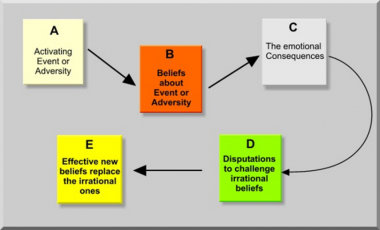
Emotional intelligence and specifically social skills impact the way you communicate and interact with others, both verbally and non-verbally. In Goleman’s theory, social skills are described as your capacity of being a visionary leader, influencing and developing others, communicating well, being a change catalyst, managing conflict, building bonds, working in teams, and collaborating.
In my last article, you explored your capacity for developing yourself and others. Continuing the quest for self-development, you should next consider communication skills and how you can leverage them through emotional intelligence.
Non-verbal or verbal communication is a social skill that is present in our lives from the day we are born. For many, being a good communicator, developing or reinforcing communication skills, and being assertive while delivering a presentation are challenges. Therefore, you will find countless books or training workshops that could help you develop and build good storytelling and communication skills.
However, communication is not only about public speaking or being influential, but also about how you can control yourself and your emotions through emotional intelligence.
Know Thyself
The key pillar of self-management is self-control, which is your ability to regulate your emotions, and not be led by them. However, you cannot control what you do not know. Therefore, the first step is to be self-aware and get to know how you manifest your emotions.
The basic emotions, such as happiness, sadness, fear, and anger, are common ones, but you experience them uniquely because of your individual perspective. In addition, sometimes it is difficult to recognize your emotions, such as grief, regret, and jealousy because they can be more complex. And they are complex because they can differ based on your individual principles and cultural values.
When presenting in a meeting or to an audience, your emotions might suddenly appear, and it is necessary to manage them. You might notice an accelerated heart rate or a hot or cold sensation or dry mouth to name a few examples.
Learning how to manage your emotions is an effective way of improving your communication skills, and it happens when you figure out what causes the emotion you want to control.
Nix Negativity
Albert Ellis, who pioneered the development of Rational Emotive Behavior Therapy (REBT), worked on the premise that emotions that affect you negatively occur because you have a mistaken belief system about yourself, others, and the world. The idea is to identify irrational and negative thoughts that lead to an emotional reaction. Some examples of mistaken beliefs are: “I can't do this,” “If I fail, they will judge me,” “I'm not good enough,” “It's too late for me,” or “I'm not ready yet.”
Ellis proposes the ABCDE-model, which is represented in the graphic below.

Ultimately, by identifying these wrong thoughts or beliefs and exchanging them for real and adaptive ones, you will be able to control your emotions. See the example below of having a negative thought when presenting in a meeting:

We must recognize this mistaken belief of “If I fail, they will judge me” and replace it with a positive and adaptative belief, such as, “I’m well prepared and I will deliver my best.”

Understand How Your Brain Works
When you think about negative consequences or have a fear reaction, a part of your brain called the hypothalamus activates and triggers a sequence of biological processes, which will result in the release of adrenaline and stress hormones into your blood. This is how your system adjusts for the best fight or flight reaction.
These hormones lead to bodily changes that prepare us to be more efficient when in danger. If you, based on a mistaken belief, are fearful of speaking in public, your brain will understand that you are in a dangerous situation. Your flight defense will kick in.
To avoid this pitfall, you must:
• Be self-aware about your emotions
• Be able to control your emotions
• Turn negative emotions into positive ones
You should remember that we project our beliefs onto the world. If we think, we’re not going to be good at something, others will believe this, too. In this sense, we have the power to change our narrative.
Be the pilot of your own brain. You control your brain, not the other way around.
Photo courtesy of Stock Photo Secrets



























